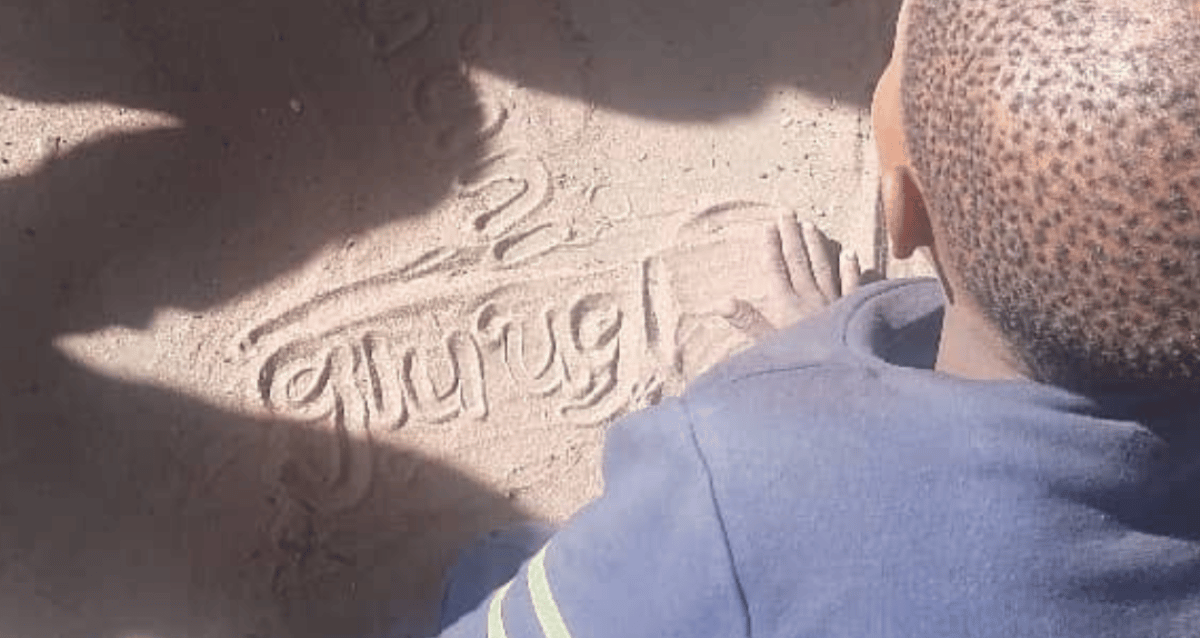
In 2021, the local leadership of the the San Ju/’hoansi — Namibia’s First People, recognized as Indigenous to Southern Africa and Namibia — reached out to TTF saying, “Our children currently travel far to attend boarding school; the journey is dangerous and conditions there are difficult. We believe we can do better for our children in our own village, and provide a two-eyed seeing school in the village.”
Why A School in The Village Is Critical
- Schooling outside of the village pulls our children far from home, culture, and language — often to distant boarding schools that are dangerous to travel to and with difficult living conditions.
- Keeping learning in the village, as seen above, means the children stay close to their families, receive culturally grounded teaching, and carry forward our knowledge of land and spirituality.
We quickly began collaborating with the Ju/’hoansi to support them in creating a decolonized Indigenous curriculum, held within a learning framework that preserves Indigenous knowledge in its entirety—not as a token add-on.
/xoa-//he
The community-chosen name for the school is /xoa-//he, meaning “life together.” This reflects the mission of the school and programming — to gather knowledge, experience, and life together so our children can learn in a way that honors who we are and where we come from.
/xoa-//he is the Ju/’hoansi way to protect language and culture, keep our children close, and walk forward with confidence alongside the wider world.
What Your Support Can Do
Until supplies arrive, some of the learning is done in the sand, rather than in notebooks or on a writing board.
Today, the physical learning space for the school is 70% complete.
Phase I began with preschool and Grade 1 and the curriculum will grow annually as the children grow with the school.
With funding, the Ju/’hoansi-led team can complete construction in approximately three months and equip /xoa-//he for opening.
- Priorities
- Finish the classroom building and basic fit-out
- Provide materials for learning
- Support the Indigenous-led curriculum (materials, translation, teaching time)
- Phase II will see the addition of showers and toilets for the children (not yet included in current plans)
PARTNERS in this WORK
- Koba Renate Kha//xan, community member and Head of School
- Namce Freddy Nqeni, community member, School Secretary, and Translator
- Kate Matzopoulos (University of Bath), PhD student volunteering since 2021, assisting with curriculum development; trusted and known to the community
- Tribal Trust Foundation, supporting documentation of San culture and funding liaison
HOW YOU CAN HELP
- Share: Tell a friend, school, or community group about /xoa-//he and encourage giving or collaboration.
- Connect: Contact TTF if you can support materials, fixtures (showers/toilets), or learning resources.
- Donate for the school building and learning supplies: Your donation helps finish the build and launch the school.
Thank you for considering making a DONATION TODAY.
